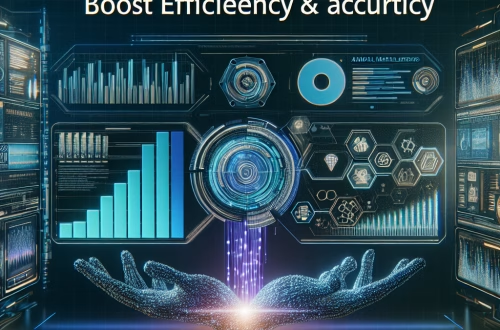Notion AI for Organizing Research Notes
Summary:
Notion AI is an intelligent productivity tool that enhances research note organization through automated tagging, summarization, and cross-referencing. It empowers students, academics, and professionals to streamline complex information by leveraging generative AI for content structuring, idea generation, and metadata management. The tool matters because it solves critical pain points in research workflows—time wasted on manual sorting and difficulty connecting fragmented insights. For AI novices, it offers a low-barrier entry into AI-enhanced productivity without requiring technical expertise.
What This Means for You:
- Reduced Cognitive Overload: Notion AI automatically categorizes your notes using custom tags and relational databases, letting you focus on analysis. Create templates with “/ai fix spelling” commands to clean data upon entry.
- Enhanced Knowledge Synthesis: Use “/ai summarize” on lengthy PDF excerpts or interview transcripts. Cross-link findings using AI-generated “See Also” suggestions to discover hidden connections between sources.
- Accelerated Drafting Process: Generate literature review outlines or methodology descriptions via “/ai continue writing.” Always fact-check outputs against original sources before finalizing documents.
- Future Outlook or Warning: While Notion AI excels at pattern recognition, it cannot replace domain expertise. Expect improved multimodal analysis (image/video transcription) but remain cautious about potential data privacy concerns when handling sensitive research topics. Establish manual review protocols for critical materials.
Notion AI for Organizing Research Notes
The Architecture of Efficiency
Notion AI integrates directly into the platform’s workspace through slash commands (/ai) and contextual prompts. When activated, researchers can automatically:
- Generate metadata tags from text content
- Connect related notes across databases
- Convert messy brain dumps into structured tables
- Extract action items from meeting transcripts
Unlike standalone AI tools, this functionality lives where work happens – inside your existing notes, kanban boards, and wikis.
Core Capabilities for Research
1. Auto-Tagging & Categorization
Input raw interview notes and use “/ai suggest tags” to identify recurring themes. Notion AI detects entities (people, organizations) and conceptual keywords, populating filterable database properties. For ethnographic research, this automatically surfaces cultural patterns across field observations.
2. Semantic Search Enhancement
Overcome keyword dependency through concept-based searching. Query “studies about urban green space mental health impacts” to surface relevant notes even without exact phrase matches. This proves invaluable during literature review stages when synthesizing 100+ sources.
3. Context-Aware Summarization
Highlight technical papers and run “/ai simplify” to create layperson summaries alongside original texts. Researchers maintain detailed versions for accuracy while generating shareable overviews for stakeholder presentations.
4. Citation Forecasting
In academic writing projects, use “/ai find gaps” to identify under-referenced claims. The system flags assertions needing evidentiary support and suggests potentially relevant sources from connected databases.
Comparative Advantages
| Feature | Standard Notion | Notion AI |
|---|---|---|
| Metadata Creation | Manual Entry | AI Auto-Tagging |
| Cross-Referencing | Manual Linking | Intelligent “Related Notes” |
| Content Generation | Copy/Paste | Outline/Summary Synthesis |
Implementation Framework
- Database Scaffolding: Build a central research hub with databases for Sources, Insights, and Outputs
- AI Enhancement Protocol: Apply “/action items” to meeting notes, “/ai summarize” to literature
- Validation Workflow: Compare AI outputs with original materials weekly
- Iterative Refinement: Train system via manual corrections to improve suggestion relevance
Recognized Limitations
Current constraints include:
- No citation verification against external databases like PubMed
- Limited non-English language support for semantic analysis
- Potential oversimplification of complex methodological descriptions
- No built-in plagiarism detection for generated content
Always maintain human oversight for ethical compliance and analytical depth preservation.
People Also Ask About:
- How is Notion AI different from ChatGPT for research?
Notion AI operates within your existing workspace with contextual awareness of connected databases, whereas ChatGPT functions as a separate conversational agent. This allows in-situ augmentation of research materials rather than external processing. - Is my research data secure with Notion AI?
Notion employs enterprise-grade encryption and claims not to train models on private workspaces. However, avoid uploading classified or sensitive human subject data until independent audits verify compliance with GDPR/HIPAA standards. - What’s the learning curve for research teams?
Teams familiar with Notion basics can implement core AI features within 3-5 hours. Start with template galleries featuring pre-built research databases, then gradually incorporate “/ai” commands into daily workflows. - Can Notion AI analyze PDFs and images?
Current capabilities focus on text extraction and processing. While OCR exists for PDFs, handwritten notes or diagram analysis requires supplemental tools. Expect multimodal upgrades as the platform evolves. - Does this replace reference managers like Zotero?
Notion AI lacks citation style formatting and direct database integration with academic journals. Use it for idea organization paired with dedicated reference software for publication-ready citations.
Expert Opinion:
Notion AI represents a paradigm shift in personal knowledge management rather than incremental improvement. Early adopters report 30-50% reductions in literature review timelines through intelligent cross-referencing. However, researchers must maintain rigorous source validation protocols as AI-generated summaries can introduce subtle distortions. Emerging competitive solutions from Obsidian and Evernote suggest rapid market evolution, making current implementations foundational rather than final solutions. Institution-wide deployments should await enhanced permission controls for collaborative environments.
Extra Information:
- Notion AI Official Features Page – Details on current slash commands and update roadmap
- Research Paper Organization Tutorial – Step-by-step Notion AI database implementation
- AI-Assisted Research Study (Science Magazine) – Contextualizes Notion AI within broader academic productivity trends
Related Key Terms:
- AI-powered research note templates for Notion
- Automated metadata tagging for academic research
- Semantic search in knowledge management systems
- Notion AI literature review workflow optimization
- Cross-database relationship mapping for researchers
- Generative AI for qualitative data coding
- Notion AI academic workspace configuration guide
Check out our AI Model Comparison Tool here: AI Model Comparison Tool
*Featured image provided by Pixabay





